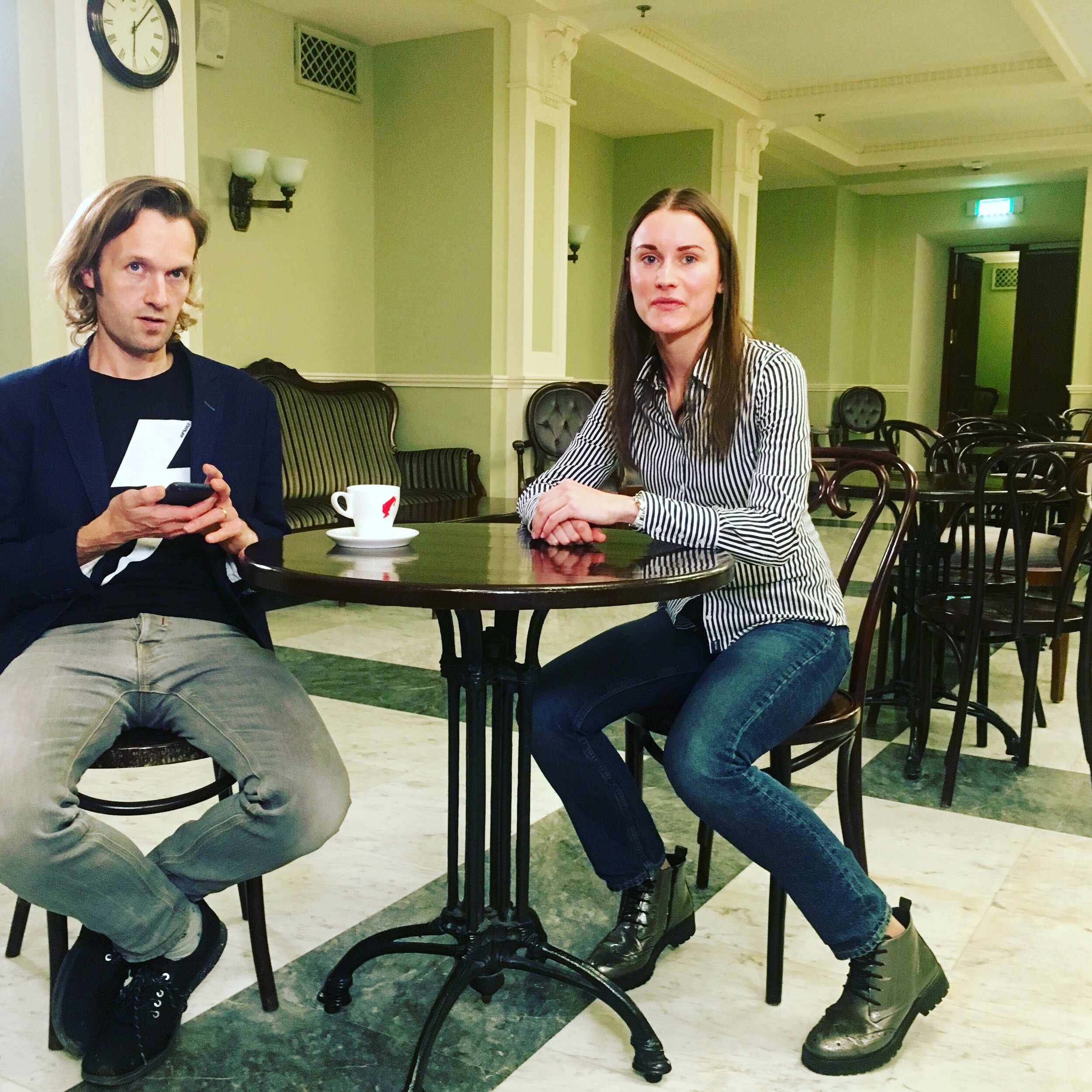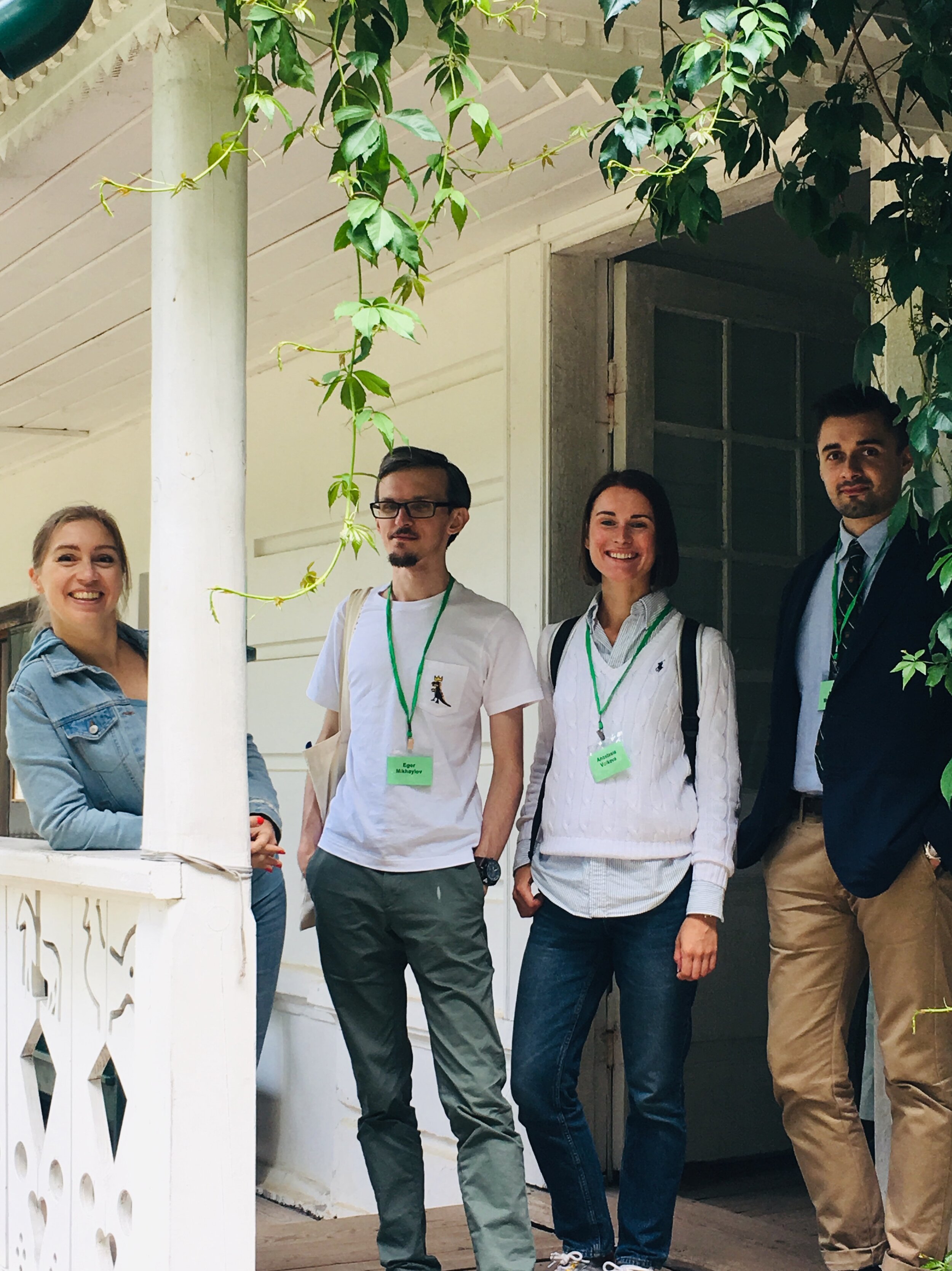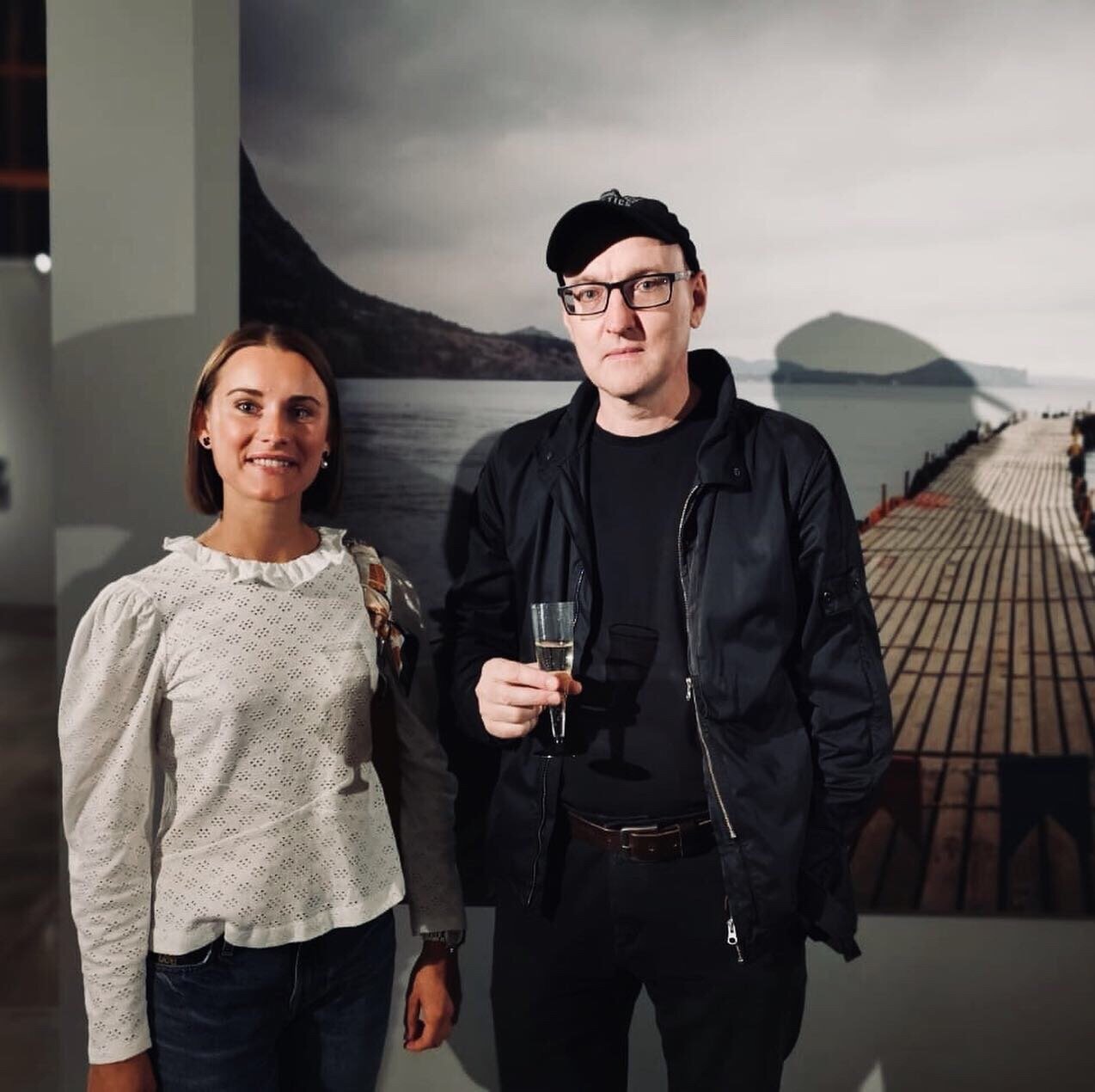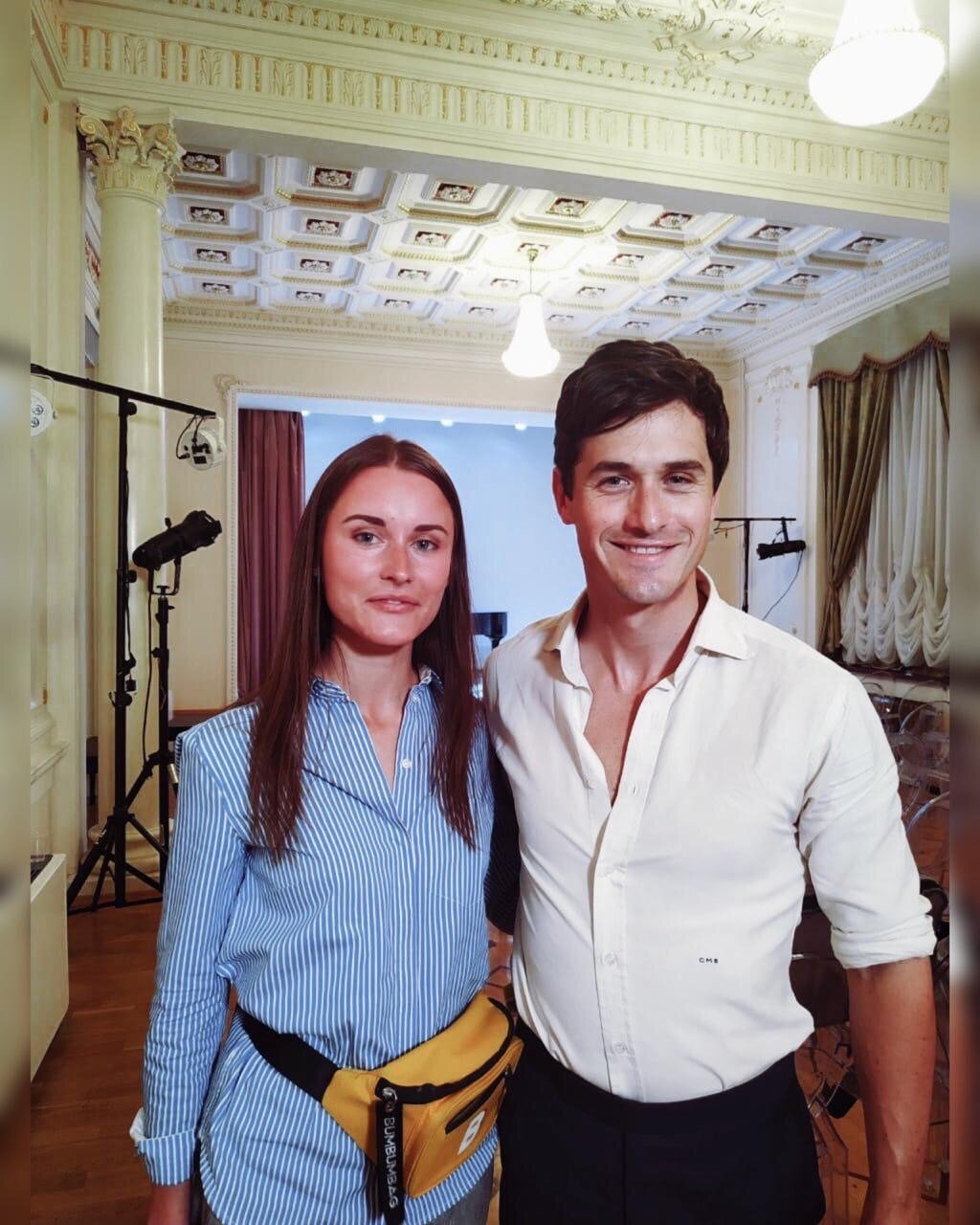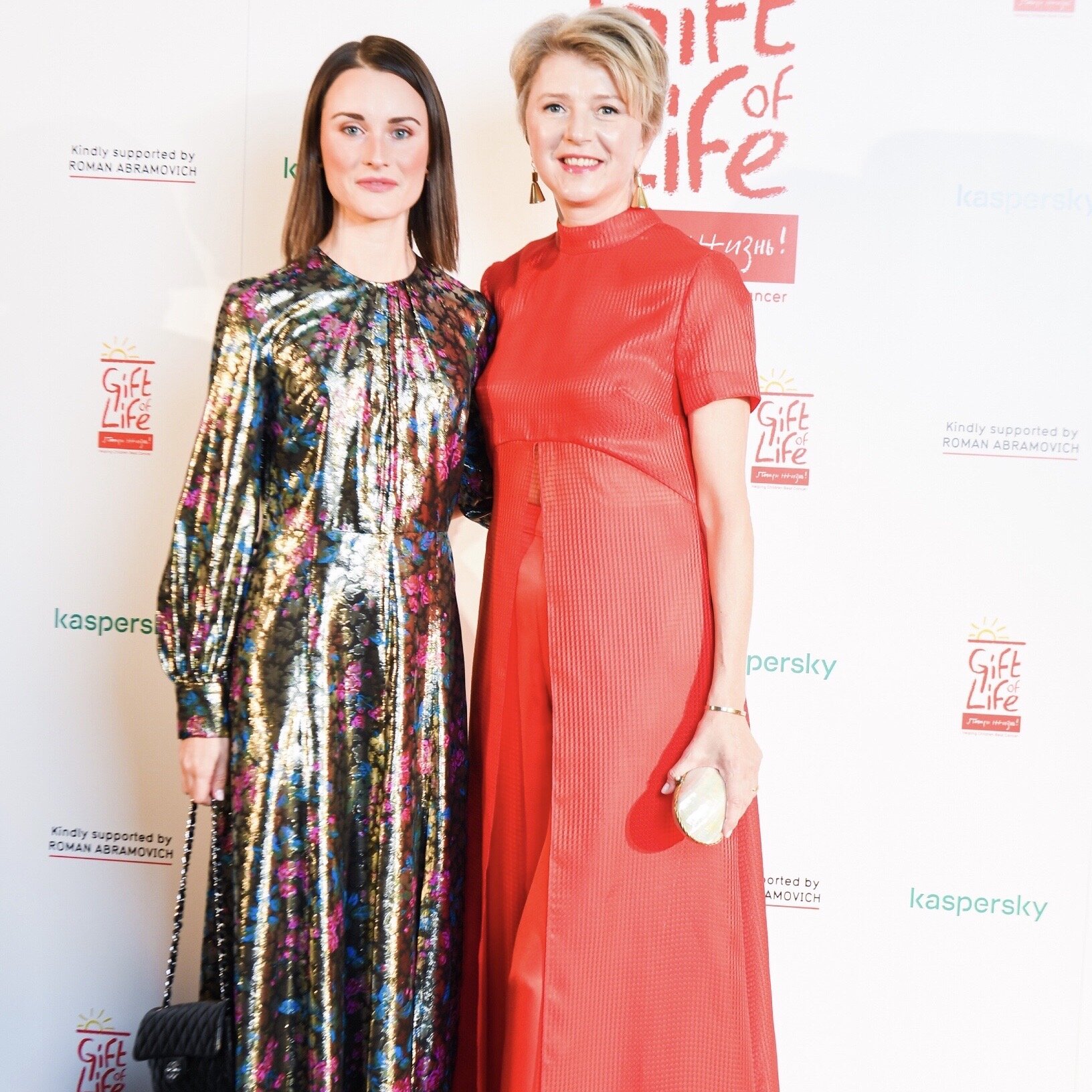Anastasia Volkova, PR expert and founder of KK BURO
KK BURO is one of the few boutique PR agencies in Russia specialising in the promotion of culture and the creative industries. In this portrait, we explore the motivations and inspirations of Anastasia Volkova, founder of the award-winning agency and cultural PR expert. We hear how Covid has affected the profession and the sector, and she shares her tips for new creatives trying to get their art to audiences.
Anastasia’s first role after studying PR in the journalism department at Moscow State University was at the small private art gallery Agency. Art Ru as an arts manager, curator and PR professional. She also has a Masters in the History of Art, and an exhibition she curated for the Agency. Art Ru dedicated to female art was featured in the 5th Moscow Biennale for Contemporary Art. Yet she chose to capitalise on her training in PR and follow a path in cultural communications. With a decade of experience working with clients such as the Petr Konchalovsky Foundation, Frolov Gallery, Stas Namin Theatre, the Jewish Museum and Tolerance Centre, MARS Centre for Contemporary Art, and the British Council and the British Embassy in Moscow, she founded KK BURO in 2018, her agency dedicated to the comprehensive promotion of culture.
Surviving and thriving in a post-Covid world
“When Covid overpowered us this summer, I had zero work. This was a very sad time...Luckily from September, we started to do some things for our clients again”.
Though the initial shock left them with a quiet to-do list, KK BURO has survived Covid and business has picked up since September. With a core team of collaborators, all working freelance, Anastasia had unknowingly created a model that could be flexible in response to the crisis, as well as open to opportunities that came their way.
"Long before the pandemic I was lucky to use a project-based business model that really helped me to survive. From the start, my newborn small team and I had different locations. We shared only our passion for culture and use of digital tools to deliver projects.”
Photo by Artem Ivanov
Anastasia is collaborative and pragmatic. KK BURO doesn’t specialise in specific artistic sectors or sub-sectors because ‘the cultural sector is so small that it’s almost suicide to have a specialisation’. This openness across disciplines is also visible through KK BURO’s membership in the Small Agencies Hub, which supports collaboration amongst small and independent agencies across Russia and the CIS countries (former Soviet Union), despite the natural sense of competition in the field.
“The goal of the Small Agencies Hub is to help each other with some consultancy. Each agency has expertise in different sectors. We have an expertise in cultural communications. Another agency specialises in PR for Tech start-ups, the other one - in Influencer Marketing. That means that we can share our expertise and help each other to achieve better results in our work.”
Covid changed how people see digital communications. Anastasia notes that since September, clients are much more aware of the value of social media. Cultural institutions are now asking them for consultancy on how to use social media tools effectively. One client, for example, is finding new ways to share educational material on social media to accompany a new lecture-concert series.
Inspired by people
“What inspires me...I can say for sure, it’s people. This sector gives you so many opportunities to get to know and communicate with such a talented, beautiful and unusual set of people. They are fantastic. All the artists, all the musicians that I’ve had a chance to work with, and with some of them, now we are friends...The people, they are amazing.”
That people are the inspiration for her work follows through into the onboarding process for KK BURO. They follow the traditional format for any PR company - rely on the client’s brief - but they make time for more conversations and meetings than most.
“When I start to work with a project, I dive into it, I talk a lot with the people behind the project, to find out their hopes, their likes, what they really want. This is an important part of the process, for both sides...In addition to the PR brief, I try to understand something beyond the form. We are all people, and we are all very creative, and if we try to be creative and learn from each other, everything will go smoothly and the results will be great. Such a personal approach requires time - but being a boutique agency, we can afford this!”
The images above are with Gabriel Prokofiev, British composer, producer and DJ; with journalists Natalia Lomykina, Egor Mikhailov and Mark Marchenko at "British Literature Today" seminar; with photograther Igor Mukhin at VDNH; and with British-Norwegian violinist Charlie Siem.
It’s not controversial to discuss the lower levels of pay in the cultural sector. Those working in culture may have less money and less access to finance than others in other sectors. She once again brings up the value of the people in the sector, that by working with others we gain something more than money, a type of cultural capital and personal development. This relates to something deeper, namely, the very reason people pursue a career in the cultural sector in the first place.
“It’s a balance between exciting people, exciting projects, and finance.”
Trends and tips
When I asked Anastasia about how digital was affecting trends in cultural PR, she made an analogy to the argument between book lovers and digital book readers. Though there was a big debate, we still read using a mix of these tools.
“I’ve been working in PR for ten years and there are so-called big brands, like Forbes, Vogue, Kommersant, TASS…People follow these media outlets, they trust them. While we still work with “big brands'' in the traditional media, we also use other information channels in our PR campaigns. We work with Instagram bloggers and influencers, as well as Telegram channels and specialised digital media outlets. We make it like a box. A little bit traditional, a little bit digital, a little bit broadcasting - to make sure that all segments of the target audience learn about the project.”
For start-ups, for new projects, she recommends that they focus on digital audiences. ‘It’s cheaper’, and micro-influencers can work with them on a barter (exchange) basis. ‘For anyone with a bigger audience, you will need to pay them.’ Then, if the project is growing, she recommends exposure in more traditional media, magazines, newspapers, for example, ‘because it’s like a moment of truth - it will show the status of your project. That you are established, that people can trust you, that people should buy your tickets’. This seems to be a critical point in a project or institution’s development.
Now that everyone is online, how can an artist stand out and show their art?
“First of all, be natural. It’s the best way as an artist to present yourself, just to be as you are. Second of all, it’s important to be a part of the community. For example, in Moscow we have a great community of artists, painters, and you can participate in exhibitions, follow their Instagrams, and try to get to know each other. You need to be open to people and to be who you are. It’s the best way.”
Future plans
“The cultural sector will survive this crisis, and will still deliver their projects. Because of that, PR will still be necessary.”
Anastasia sees KK BURO’s future lying firmly across borders in the next couple of years, with a view to stimulating further collaborations with the UK and Europe. In January 2020, for example, KK BURO led the PR for the Gift of Life Gala, a fundraising and PR event in London for the charity Gift of Life to raise funds to help severely ill children.
“Our future plans include further activities in the field of cross-cultural communications, building bridges between Russia and other countries that have rich traditions and cultural heritages. We will seek such opportunities and look forward to supporting interesting projects inside and outside Russia”.
Anastasia with Lyuba Galkina, Trustee of Gift of Life Foundation
Perhaps in recognition of her award-winning campaign for the cross-cultural UK-Russia Year of Music (led by the British Embassy in Moscow and the British Council) and her participation in the Small Agencies Hub, Anastasia has recently been invited to join the Expert Council of the Silver Archer, one of Russia’s most respected and prestigious PR awards.
Anastasia’s tips for exhibitions and art fairs worth seeing
The Covid situation stopped or delayed a lot of cultural projects, but Anastasia had a few tips to share of recent and forthcoming sector initiatives to keep an eye on. She recommends Cosmoscow international art fair for bringing less established but interesting new galleries, like Fabula Gallery and LAZY Mike, to the light [read our interview with founder Margarita Pushkina]. She also recommends an exhibition at the Museum of Moscow dedicated to the Russian avant garde artistic school VKhUTEMAS, referred to by some as the Soviet Bauhaus. The exhibition is planned to reopen in mid-January 2021.


